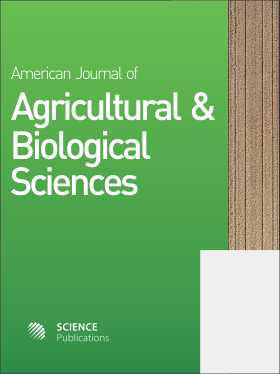NATURAL ANTIOXIDANT INGREDIENT FROM BY-PRODUCTS OF FRUITS
- 1 Department of Biochemistry, Faculty of Agriculture, Cairo University, Giza, Egypt
- 2 Institute of Food Technology, Agriculture Research Centre, Giza, Egypt
Abstract
The contents of total phenolics compounds and their phenolic constituents were quantified in organic and aqueous of four varieties (Zebdia, Sukkari, taimor and Hindi) of mango (Mangifera indica L.), seeds pulp and kernel, one varieties of pomegranate (Punica ranatum L., peel) and peanut (Arachis hypogaea L., Giza 6, shell) by-products. The antioxidant activities of all by products extracts were assessed by five antioxidant methods as well as by rancimate test. The total Phenolic content of aqueous and organic extracts of among all mango varieties, pomegranate and peanut shell showed the content values ranging from 71.06 to 124.18 mg/100g, 95.07 to 124.18 mg/100g and 41.64 to 71.06, respectively. Nineteen phenolic compounds were identified by High Performance Liquid Chromatography (HPLC) among all mango varieties, of which vanillic acid, benzoic acid and mangiferin were occurred in high amounts. The major phenolic compounds were detected in pomegranate and peanut shell were chlorogenic and gallic and caffeic (24.42%), respectively. All fruits by products were exhibited remarkable antioxidant activity, with various degrees in all tested methods. However, among all by-products extracts, organic extract had higher antioxidant than that aqueous extracts toward all antioxidant tested. Mango kernel peel and pomegranates showed high radical scavenging activity, which could be compared with the synthetic antioxidants Butylated Hydroxyanisol (BHA). However, all by-products extracts exhibited high inhibit effect against the lipid peroxidation of sunflower oil (at 100°C) as assessed by rancimat methods. However, this antioxidant activity was found to be strong significant correlation with phenolic contents (p<0.05) in by-product extracts. It can be thus concluded that varied varieties of mango, pomegranate and peanut by-products, although it constitutes the part of the fruits, it is valuable parts due to its antioxidant activities, it can be used safely in the edible oil industry and cosmetics to delay its oxidation. It can be applied in other food industries as a natural antioxidant instead of synthetic antioxidants. Further study should be carried out to identify the predominant phenolics responsible for the antioxidant activity of by product extracts.
DOI: https://doi.org/10.3844/ajabssp.2014.311.320

- 6,623 Views
- 6,433 Downloads
- 11 Citations
Download
Keywords
- High Performance Liquid Chromatography (HPLC)
- Butylated Hydroxy Anisol (BHA)
